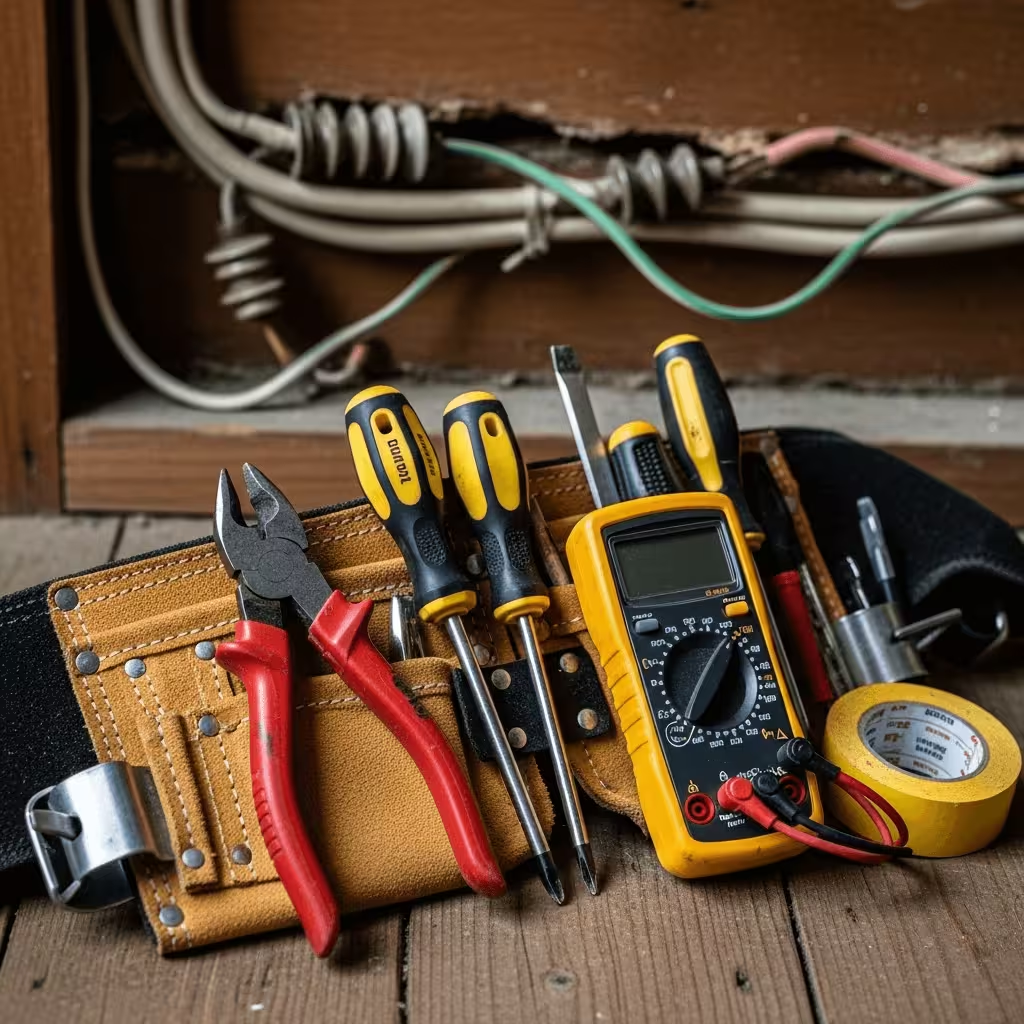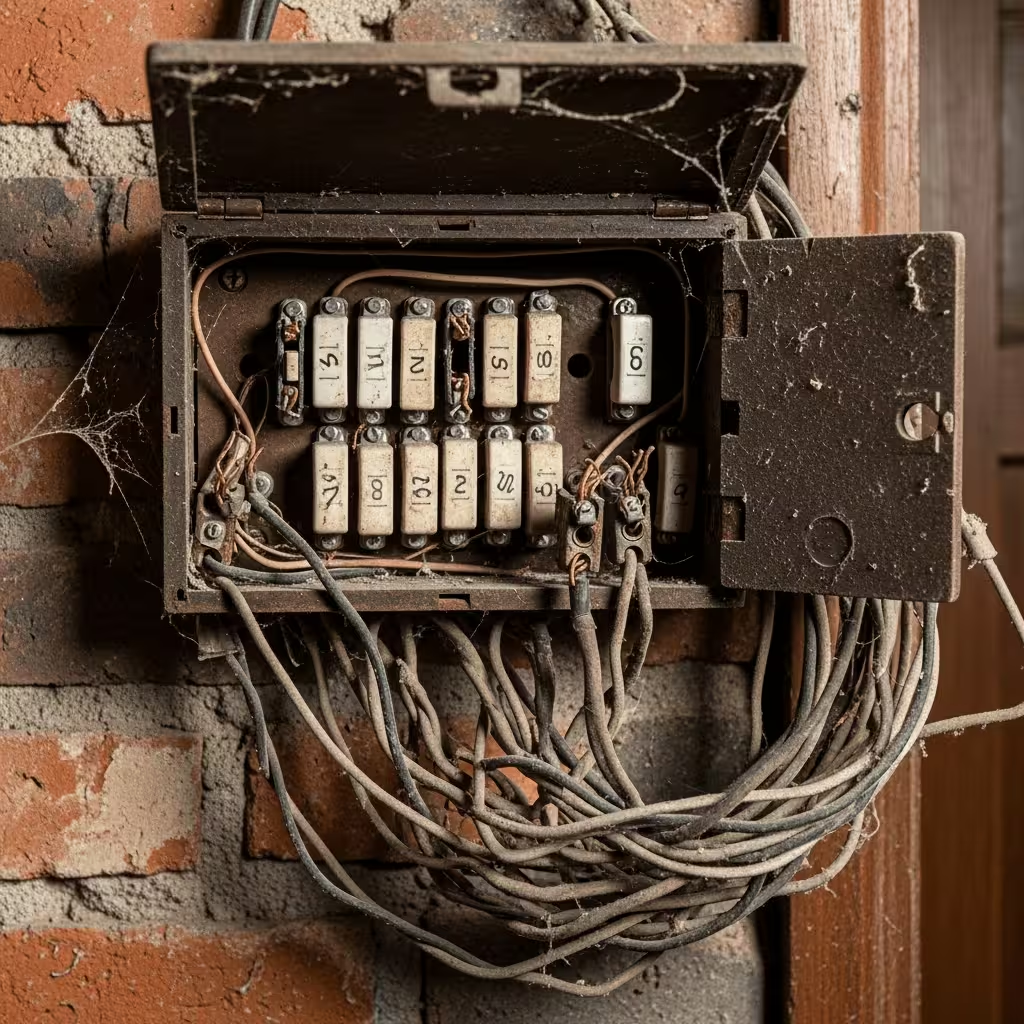How often do you need to rewire a house? Typically, homes should be rewired every 20 to 25 years to ensure safety and efficiency. This interval helps to accommodate modern conveniences and comply with updated electrical codes, preventing potential hazards.
In the realm of home maintenance and electrical safety, a common question arises: how often do you need to rewire a house? As technology advances and homes incorporate more electrical gadgets, rewiring becomes an essential consideration. Generally, the recommendation is to have your home’s electrical wiring assessed and possibly replaced every 20 to 25 years. This timeframe ensures your electrical system remains safe, efficient, and in sync with the demands of modern living.
Factors Influencing Rewiring Frequency
Several factors influence the timeline for a house rewire. Primarily, the age of the wiring plays a crucial role. Older homes, especially those over 30 years, might not support newer electrical loads, posing a higher risk of shorts and increased electricity bills. Additionally, if a home undergoes significant renovations or the installation of high-energy consumption devices, earlier rewiring might be necessary.
Signs That Rewiring is Needed
Understanding the signs that indicate a house requires rewiring is vital for homeowners. Common red flags include frequent circuit breaker trips, dimming lights, or outlets that give off a burning smell. These signs suggest that the existing wiring cannot handle current demands, necessitating an upgrade.
In Wellington, New Zealand, homeowners often consult experts like Weka Electrical to assess their homes’ wiring needs. Professional electricians can provide accurate evaluations and ensure that your home meets contemporary safety standards.

Understanding Electrical Systems in Your Home
A home’s electrical system is a complex network that serves as the backbone for modern living. Understanding the key components and their roles can significantly influence how you manage and maintain this essential infrastructure. Efficient and safe electrical systems depend not only on professional installation but also on regular maintenance and timely rewiring. Let’s explore the fundamental elements of a typical home electrical system, which ensures consistent power delivery and safety.
Components of a Home Electrical System
The primary components of a home electrical system include the service panel, wiring, outlets, switches, and fixtures. The service panel, often referred to as the breaker box, is the heart of the system, distributing electricity from your utility provider to various circuits throughout your home. Wiring acts as the arteries, carrying power to outlets, switches, and appliances, while outlets and switches serve as access points for electricity use. Fixtures, such as light fittings and fans, utilise this electricity to function. Understanding these components and their interactions helps identify potential risks and needs for upgrades, ensuring safety and efficiency within your Wellington home.
Signs Your Electrical System Needs Attention
Knowing when your electrical system requires professional attention can prevent hazards and costly damages. Flickering lights, frequently tripped breakers, or warm outlets are clear indicators that your wiring may need inspection or upgrades. Additionally, homes over 40 years old may have outdated wiring that no longer meets modern safety standards. Regular inspections by a professional electrician like Weka Electrical can help identify these issues early. Paying attention to these signs not only ensures safety and reliability but may also be necessary for compliance with current regulations, particularly in older properties around Wellington.

When and Why to Consider Rewiring
Homeowners often overlook the complexities of their electrical systems until a problem arises. Knowing when and why to consider rewiring is crucial for maintaining safety and efficiency. This section offers practical insights into assessing your home’s need for rewiring and highlights key triggers that may necessitate an overhaul.
Signs It’s Time to Rewire
Rewiring is a significant project, and recognising the early signs that your home needs an update can prevent future hazards. Common indicators include frequently tripping circuit breakers, persistent buzzing sounds from outlets, flickering lights, or even a faint burning smell. These signs suggest an overloaded or outdated wiring system that is struggling to cope with modern electrical demands. Homes over 40 years old are particularly prone to these issues, given the dramatic increase in energy consumption in recent decades.
Impact of Old Wiring on Home Safety and Efficiency
Aged wiring not only poses safety risks but also affects the overall efficiency of household power usage. Old or damaged wires can lead to electrical fires, which are both dangerous and costly. Additionally, inefficient wiring systems contribute to higher electricity bills as they waste energy through heat dissipation. As such, upgrading your wiring is not simply a maintenance task but a step toward greater home safety and energy efficiency.
The Benefits of Rewiring
Rewiring your home brings a host of advantages beyond compliance with modern electrical standards. These benefits include enhanced safety, increased property value, and the ability to support the latest technological advancements in home automation and energy efficiency. For example, newer wiring can accommodate additional circuits for modern appliances, reducing strain on your system. This modernisation fosters a safer living environment, which is especially important in family homes with children.
Considering these factors, it’s clear that rewiring is sometimes essential to ensure your home’s safety and functionality. As Wellington’s trusted local expert, Weka Electrical offers tailored solutions that consider both current standards and future needs.
Consulting Professionals for Rewiring
The decision to rewire should be made with the guidance of qualified professionals. A thorough inspection by certified electricians can provide clarity on the extent of necessary updates. This involves reviewing the home’s wiring condition, age, and potential hazards. Partnering with a trusted provider like Weka Electrical ensures that every rewiring project adheres to New Zealand’s safety regulations and standards, reflecting the latest technological advancements.
In summary, understanding when and why to rewire includes recognising signs of deterioration, appreciating the benefits of upgrading, and seeking professional advice. The decision to undertake such a project is fundamentally one of investing in both safety and future-proofing your home.
Why Choose Weka Electrical for Rewiring Services
When it comes to ensuring the safety and efficiency of your home’s electrical system, making the right choice in choosing a service provider is essential. This is why Weka Electrical, located in Wellington, New Zealand, stands out as a premier choice for rewiring needs. With a proven reputation for excellence in the electrician industry, they are renowned for their expert skills and customer-centric approach.
Experienced Local Experts
The team at Weka Electrical consists of highly trained professionals who have extensive experience in handling a variety of electrical needs. Operating in the heart of Wellington, they boast a deep understanding of the challenges and specific requirements that homes in the area face. Their local expertise means they can provide tailored solutions that meet both the regulatory standards and unique demands of New Zealand homes. This level of understanding positions Weka Electrical as the go-to provider for those needing frequent evaluations like how often do you need to rewire a house.
What Sets Us Apart
One of the main qualities that differentiate Weka Electrical from competitors is their commitment to quality and safety. They use only top-grade materials and adhere strictly to safety regulations, ensuring that every rewiring job not only meets but exceeds industry standards. Their services are delivered with an unwavering focus on reliability and professionalism, which has garnered them a loyal customer base. Additionally, their customer support is always available to address any concerns, making the process as stress-free as possible for homeowners.
When considering the safety and performance of your home’s electrical setup, reliability cannot be overstated. The expert guidance from a skilled provider, especially in evaluating the frequency required for rewiring, can save homeowners both time and peace of mind. Connect with the trusted
electrician in Wellington to ensure your home’s electrical system is in safe hands. Choosing the right service provider for such a critical job as rewiring can be daunting, but Weka Electrical’s stellar reputation helps make the decision easier.
Get A Free Quote
In our next section, we’ll delve into the “Frequently Asked Questions” about the rewiring process, addressing the common concerns and providing clarity to help you feel confident about your decisions.
Frequently Asked Questions
How often do you need to rewire a house?
Generally, it’s recommended to consider rewiring every 20 to 25 years. However, the exact timing can vary based on factors such as the installation’s quality, the home’s age, and whether any significant modifications have been made.
What are signs that my house needs rewiring?
Signs include frequent circuit breaker trips, flickering lights, discoloured outlets, or a persistent burning smell. It’s advisable to have a professional inspection to confirm if rewiring is necessary.
Can I rewire my own house?
While it might be tempting to undertake DIY projects, rewiring should be left to qualified electricians due to safety risks and compliance with local building codes in New Zealand.
What does the rewiring process involve?
The process typically involves removing old wiring, installing new cabling, updating sockets and switches, and ensuring the system meets current safety standards.
How long does it take to rewire a house?
Rewiring can take anywhere from a few days to a couple of weeks, depending on the home’s size and complexity of the existing electrical system.
Will rewiring increase my home’s value?
Yes, updating the electrical system can enhance the property’s safety and efficiency, potentially increasing its market value and appeal to buyers.
How does rewiring ensure safety?
Rewiring replaces outdated or damaged wires, reducing the risk of electrical fires, shocks, and failures. It ensures the home’s electrics are safe and efficient.
Are there specific regulations for rewiring in Wellington?
Yes, electrical work in Wellington must comply with local regulations and standards. It’s crucial to work with a certified electrician who understands these requirements to ensure compliance and safety. Our
house rewiring services in Wellington ensure your home meets modern safety standards and can handle today’s electrical demands.

















